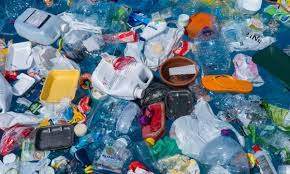LAGOS, Nigeria — Innovative waste management company, Klinserv, has secured a $100 million development financing deal to support the rollout of its large-scale municipal cleaning project across Nigeria and sub-Saharan Africa.
Speaking at the unveiling event in Lagos, Dr. Tunde Ayeye, Chief Executive Officer of Klinserv, revealed that the project is being executed in partnership with Hako, a globally recognized German manufacturer of municipal, residential, and industrial cleaning machines and robotics. The initiative aims to revolutionise urban cleaning operations in Nigeria, beginning with Lagos State as the pilot hub.
According to Ayeye, the eco-friendly project introduces advanced cleaning technologies tailored for various environments including roads, airports, seaports, factories, construction sites, drainage systems, and residential areas.
“We have secured development partner financing to the tune of $100 million to support this project,” Ayeye disclosed. “Our model allows state governments to access our services without making large upfront capital expenditures. Payments can be structured over 5 to 10 years, depending on the market size and financial capacity.”
The business model mirrors the Public-Private Partnership (PPP) structure previously seen with the Private Sector Participation (PSP) waste scheme in Lagos. Under this structure, Klinserv provides the technology and operational framework, while state governments offer guarantees and deploy staff to manage the cleaning systems. The initiative is designed not just to improve sanitation but also to create jobs, build capacity, and ensure long-term sustainability.
Ayeye emphasized the centrality of government involvement in driving the project, noting that the development partners require assurances of state-level commitment before full deployment.
“We provide the cleaning machinery, training, and the operational framework, while the state brings in personnel. It’s a job creation engine with long-term impact,” he added.
The Klinserv-Hako partnership leverages Hako’s decades of experience in high-efficiency, environmentally-friendly cleaning technology. Reji Cojo, Regional Manager for the Middle East and Africa at Hako, said the firm has continuously evolved since manufacturing Europe’s first sweeping machine in 1961. In 2021, Hako introduced its first series of autonomous robotic cleaners, and today, its machines run on battery, diesel, or petrol – optimised for low emissions and high performance.
“We pride ourselves on durability, aftersales service, and automation. These machines are designed to operate seamlessly in busy urban environments, improving sanitation without disrupting traffic or operations,” Cojo said.
Lagos State Governor Babajide Sanwo-Olu, represented by Commissioner for Commerce, Cooperatives, Trade and Investment, Folashade Ambrose-Medebem, praised the initiative, calling it a “game-changer for sanitation, environmental sustainability, and job creation in West Africa.”
“Lagos State is proud to be the launchpad for this landmark initiative. With our growing population and urban pressures, technology-driven solutions like this are essential to maintaining hygiene, protecting public health, and ensuring a livable city,” the governor said.
The unveiling event showcased a fleet of PECO outdoor municipal sweepers, advanced robotic cleaning units, and specialised sector-focused equipment. Designed with both automation and adaptability in mind, the machines will play a vital role in maintaining cleanliness across Lagos’ highways, airports, industrial parks, and residential neighbourhoods.
The state-of-the-art cleaning systems are expected to boost sanitation standards, reduce manual labor risks, and introduce data-driven maintenance protocols to the public space cleaning sector.
Experts say that Klinserv’s financing model is crucial for replicating the project across other Nigerian states and beyond. By removing the capital expenditure barrier and providing operational support, Klinserv is positioning itself as a major player in Africa’s urban cleanliness and environmental sustainability sector.
As the project expands, it could set a new standard for smart city hygiene infrastructure across the continent, combining eco-friendly technology, public-private partnerships, and inclusive job creation.
